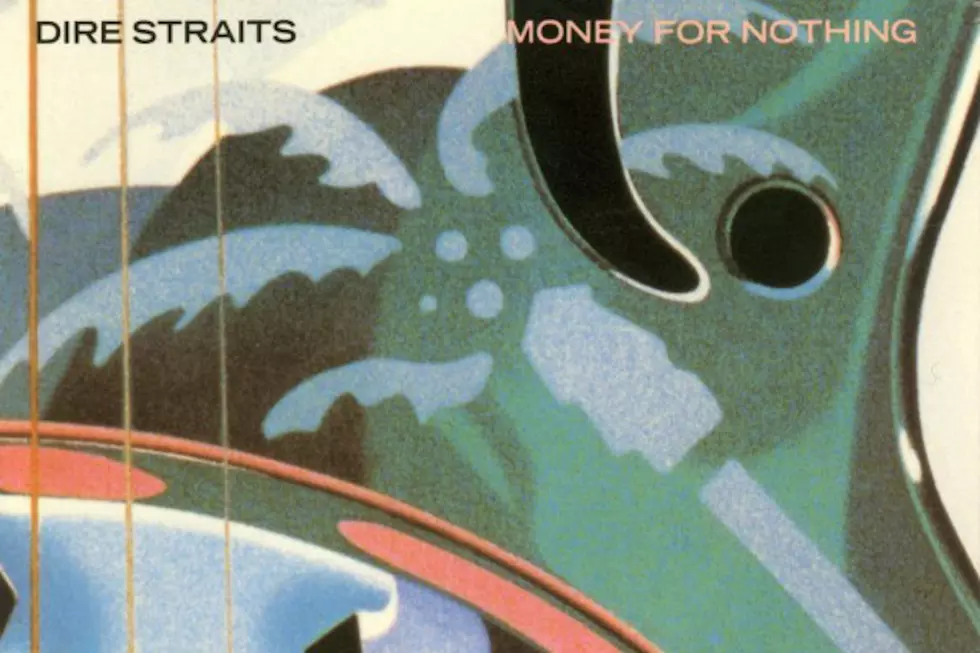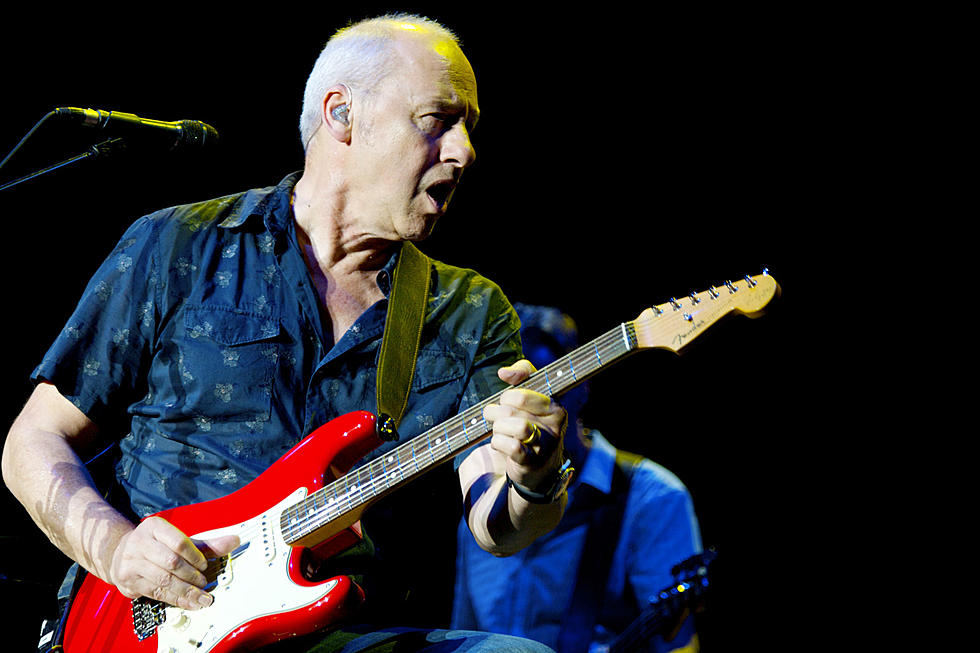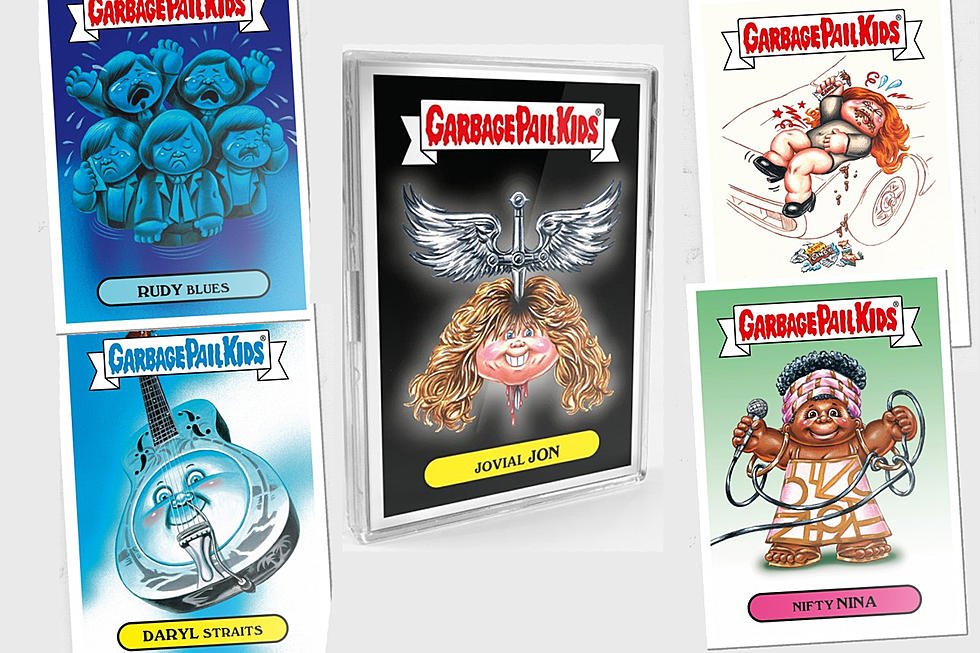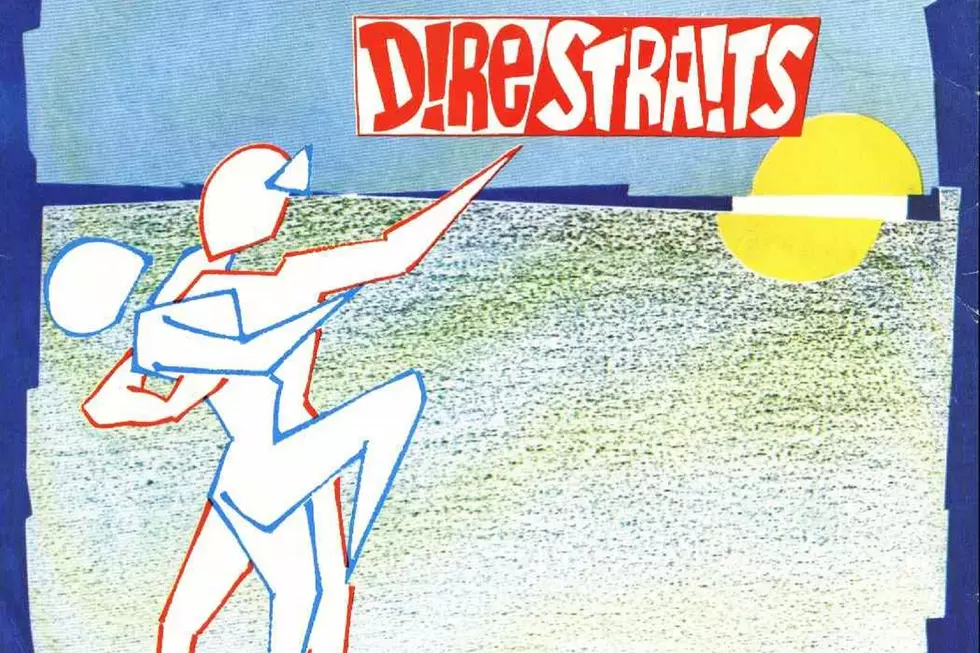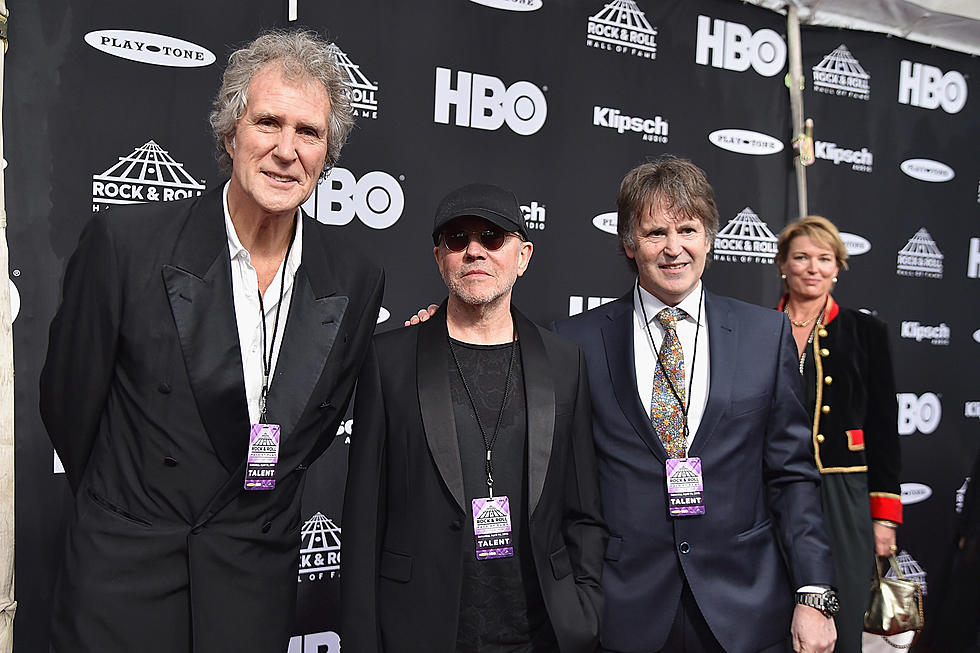
John Illsley Says Dire Straits’ 2018 Rock Hall Induction Was Odd
Dire Straits began building their legacy in 1978 with the release of their self-titled debut album. Their records, written by singer and guitarist Mark Knopfler, quietly gathered steam over the years before peaking with 1985's Brothers in Arms, which spent nine weeks at No. 1. Powered by the success of singles "Money for Nothing" (also a No. 1) and "Walk of Life," Dire Straits played nearly 250 shows during a sold-out tour.
Their 2018 induction into the Rock & Roll Hall of Fame was a bit more complicated. Knopfler didn't attend the ceremony, and the members who did show up didn't perform. With minimal fanfare, bassist John Illsley stepped to the podium to induct his own band.
Illsley takes an extensive look back at the group's history in his new memoir, My Life in Dire Straits: The Inside Story of One of the Biggest Bands in Rock History, which arrives Nov. 9. Knopfler, who remains a close friend, wrote the book's foreword. One thing he doesn't discuss, however, is what happened at the Rock Hall. So, we asked Illsley about it.
What was Dire Straits' Rock & Roll Hall of Fame induction like for you?
Interesting. [Laughs]
It unfolded in the way I expected it to, but I also hoped it would unfold differently.
I think I probably agree with you on some of that. It was quite tricky to get it right, to be honest. I knew Mark ... was somewhat reluctant, because of the way it was politically handled. I completely understood that. But I just felt that at least one of us should be there to acknowledge it. To me, it was sort of a prestigious thing to be offered to the band, no matter what you think about it. It’s a recognition of something and fairly important. I didn’t want to let that go. I wanted to celebrate it in a way as best we could under the circumstances.
But it was a little odd, having to induct one’s self into the Rock & Roll Hall of Fame. I’m not sure whether that had ever been done before.
The other weird part was that the band’s songs weren’t performed. Was there ever a discussion about doing an all-star jam of some sort on some of the songs?
It didn’t really develop into anything. I would have been very happy to do that. But it became sort of a political football, and I didn’t really want to kick it around too much. I just thought, “How can we actually retain some sense of calm and civility in the situation without trying to do something?" I would have loved to have played. I would have sat down with [keyboardist] Alan [Clark] and done a couple of verses of “Sultans [of Swing]” just for the hell of it. But it just got very tricky.
I was sort of relieved, actually, when it was all over. I went to New York to recover for a couple of days. [Laughs]
The band didn’t make a lot of records, but they all hold up well.
Yes, I think on reflection, they probably do. I think the most important thing I wanted to acknowledge as well was the fact that this is a two-way flow. The music from the band is one thing, and then the celebration of the music with the people who listen to it is another thing. You realize as you go through life that music is a very powerful force in our world. I think sometimes we treat it rather lightly, as if it’s just something that happens to be there. But there’s an awful lot of integrity that goes into music of all sorts. I’m not just talking about the kind of music that we make.
There’s so many different genres of music which people listen to. In a sense, I see it as giving a different sense of reality. When you write a song, it’s a bit like doing a painting. You’re looking at reality, and you’re sort of changing it slightly, whether it’s completely abstract - which some lyrics are, quite difficult to follow - or it’s something that has a storyline to it, which gives somebody a different way of looking at the world. To me, on reflection after all of these years, it’s certainly what I’ve gotten out of it. Which is one of the reasons, with the book, it was important for me to recognize Mark in a way which he would never do himself. Because he is actually a very modest man. I know it sounds kind of weird, but he is.
He doesn’t like blowing his own trumpet, so I figured I’m probably one of the few people who could actually sort of blow it quite calmly and show people another side of him. Because it was a remarkable experience working in that environment for so long.
Top 100 '80s Rock Albums
More From KYBB-FM / B102.7
